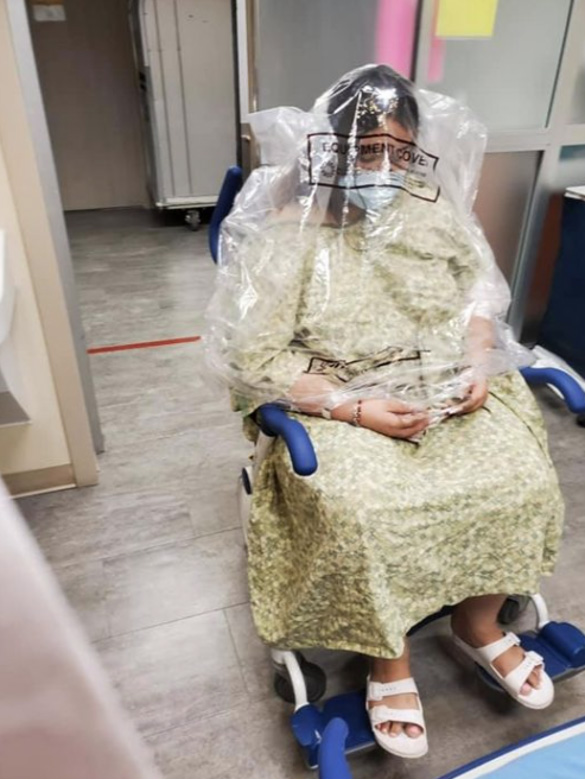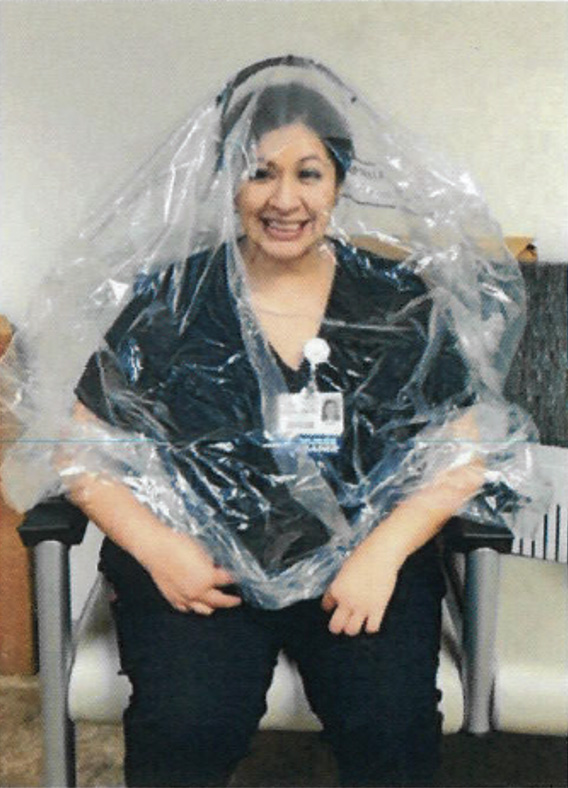

In October, we learned about a Facebook post with a picture of a young woman in a hospital gown with a plastic bag covering her head from Dr. Richard Bartlett. According to the post, the young woman tested positive for COVID-19 and was in an emergency room in Odessa, Texas because she could not breathe. Pre-bag. Let that sink in. This is the picture from the post:

The bag appears to be labeled “Equipment Cover” and has a warning that it can cause suffocation on it. ICAN wanted to know why any health professional would cover the head of a person who couldn’t breathe with anything, let alone with plastic! Through its attorneys, ICAN submitted a Public Information Act Request to the Medical Health Center System in Odessa, Texas for a copy of the hospital’s policy to use plastic drapes to cover the heads of COVID-19 patients. The hospital produced its policy, dated October 2021, which states in part:
All [patients under investigation] and COVID positive patients must wear an isolation drape for all transports outside of their room.
The hospital doesn’t use the word “plastic,” but it does include a picture of a smiling healthcare professional covered in plastic.

Which one of these women looks more like reality?
The policy says that patients can refuse the plastic drape, but the script hospital staff are required to us does not give patients an option. Patients are only informed that they are “required” to “wear a transportation draft for transport to or from” their rooms.
As if the plastic drape wasn’t bad enough, the hospital also requires COVID-19 patients to wear a surgical mask underneath the plastic bag and be on a nasal cannula during transport (neither shown in the smiling woman photo)! So, if you get COVID-19 and cannot breathe, this hospital will force you to cover your face with not one but two things that make it harder for you to breathe. Don’t worry, though. It’s for your own safety. The hospital even said so: “Our top priority will always be the safety and care of our patients. We are always willing to listen to our patient’s experiences to better communicate with them to make sure they are comfortable.”
A question remains whether this is the original policy, created months after stories of patients being subject to plastic “draping,” or whether it is an updated version. ICAN has inquired about that and will continue to investigate alleged inhumane treatment of COVID-19 patients and will keep you updated along the way.
